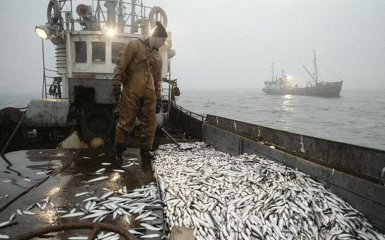The new package of EU sanctions may include a ban on fish imports from Russia.
Points of attention
- EU is considering banning fish imports from Russia as part of new sanctions, potentially impacting the European fishing market.
- Germany and other EU countries heavily rely on Russian fish supplies, particularly pollock, with no adequate replacement options at the moment.
- Sanctions against Russian fish could lead to significant disruptions in the European fish processing industry.
- The US, as the second largest supplier of the same type of fish to Europe, has also banned Russian Alaskan pollock imports, adding to the challenges faced by EU countries.
- The EU's move to ban Russian fish imports highlights the growing economic consequences of political conflicts on global trade relationships.
What is known about the EU's alleged refusal to import Russian fish
According to the publication's journalists, back in 2022, after Russia began a large-scale criminal war against Ukraine, EU countries stopped importing crustaceans and Russian caviar as part of the eighth package of sanctions.
However, these restrictions did not affect the supply of Russian fish to EU countries.
Currently, the EU leadership is discussing the introduction of stricter restrictions on Russian imports, which may affect the import of fresh fish.
In particular, this decision is supported by the Baltic countries.
Thus, the Lithuanian government complains that Russian vessels are engaged in fishing in the waters of their country and demand a response to such actions.

Analysts expect that the European Commission will start considering this issue from the end of summer.
According to the European Fisheries Industry Association AIPCE, more than 70% of pollock deliveries to EU countries were made by Russia.
Who in the EU remains dependent on fish supplies from Russia
Up to 85% of the Alaska pollock consumed in Germany currently comes from Russia.
It is noted that Germany remains import-dependent in the field of fish processing, as it has only 6 deep-sea trawlers and does not engage in deep-sea fishing.
If supplies from Russian pollock fishing in Alaska were to stop completely due to sanctions, there would be no replacement for them at the moment, - explains the managing director of the Federal Association of the German Fishing Industry and Fish Wholesalers, Stefan Mayer.
According to him, only supplies of fish from the USA cannot compensate for the volume of imports from Russia.
At the moment, there is no other fishery in the world that would offer the necessary volumes, as well as the stamp of sustainability, - said Mayer.
The United States is the second largest supplier of this type of fish to Europe after Russia.
The US has banned the import of Russian Alaskan pollock.



